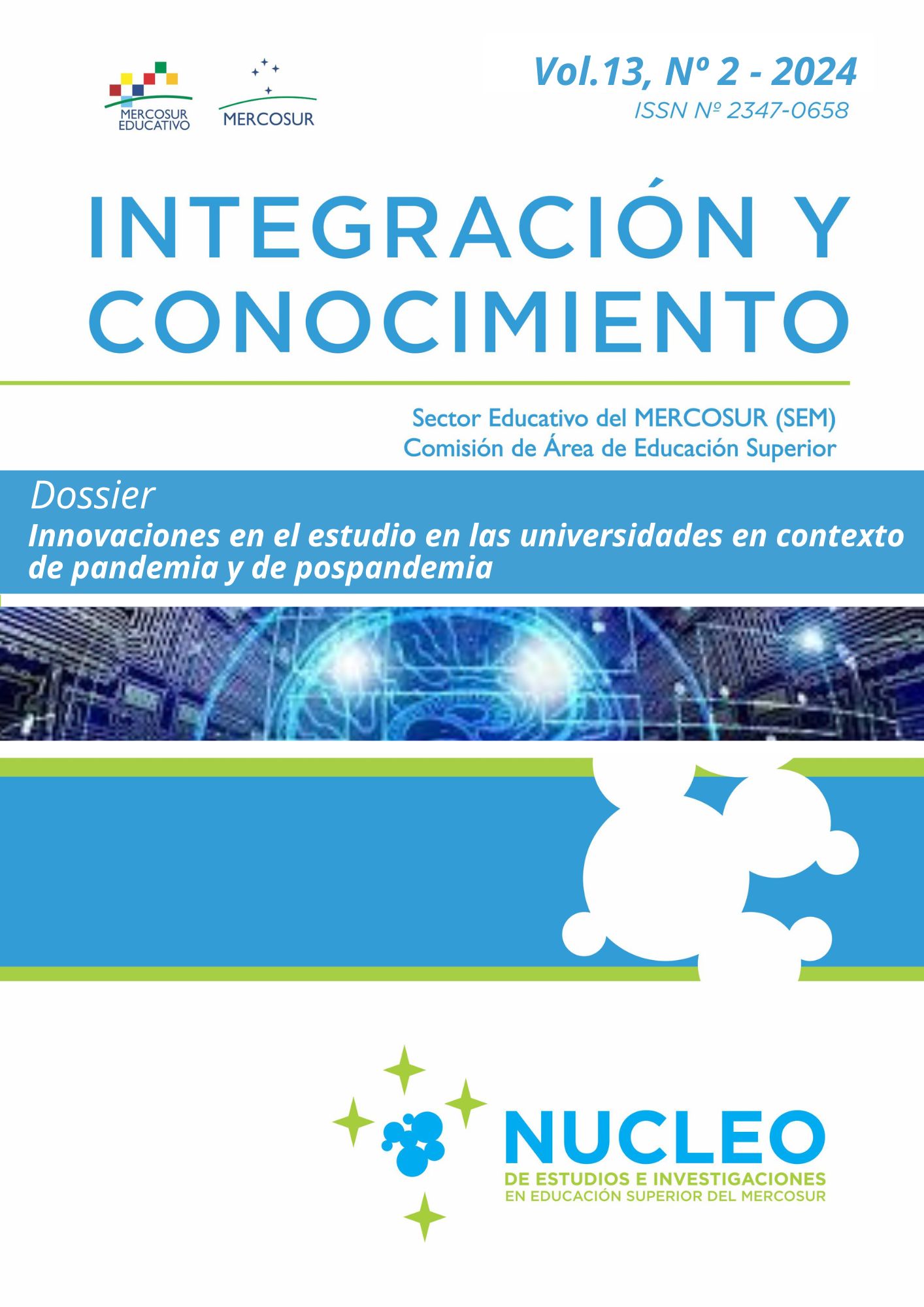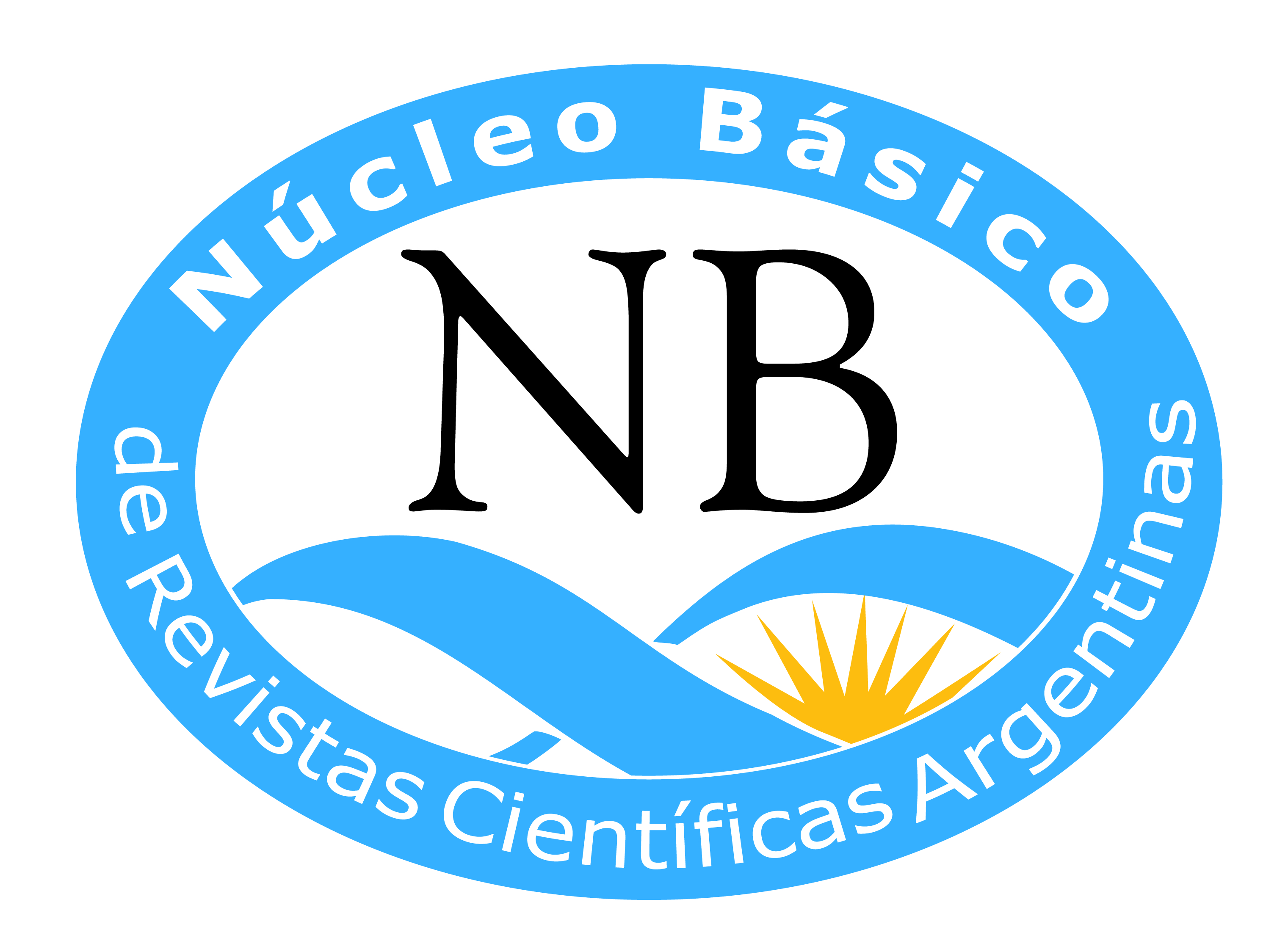NOMADIC TEMPORALITIES IN HIGHER EDUCATION. POSTGRADUATE TRAINING AND ACADEMIC PROFESSION FROM ALTERNATIVE METHODOLOGICAL MIXTURES
Keywords:
Higher Education; Postgraduate Training; Academic Profession.Abstract
One of the objects of study in the field of higher education is postgraduate training and its material and symbolic links with the beginning, development and consolidation of the university academic profession. This object is in constant dynamism and permanent thematic and methodological expansion. We present here the main findings of a postdoctoral research in which the explicit and tacit intersections of postgraduate training and the academic profession were investigated based on the autobiographical and professional narratives of the academics of the National University of Mar del Plata. The article that we share describes the links that are intertwined between said training and the local academic profession based on the exploration of statistical yearbooks, the results obtained from the more than 200 surveys carried out with teachers and researchers at the UNMdP and testimonies from academics. of the different faculties of the Mar del Plata university. By recovering these narratives, we focus on the biographical value of their narratives where the chronotopic plots and nomadic temporalities that occur in the future of training are revealed, and the complex amalgam between personal and professional life evidenced in the deployment of their stories. The narrative findings are configured in interstices from which to construct the field of educational research in an alternative way, make visible the human face of postgraduate training and produce displacements and future debates around the national academic profession itself.
Downloads
References
Aguirre, J. (2022). El Rostro Humano de las políticas educativas. Narrativas del proyecto de formación docente “Polos de Desarrollo”. Mar del Plata: EUDEM.
Aguirre, J. (2021a). La formación de posgrado en la profesión académica argentina. Exploraciones a partir del proyecto APIKS y los anuarios estadísticos universitarios. Revista de Educación, 23(2), 1-15.
Aguirre, J. (2021b). Profesión Académica y Formación Doctoral. El caso argentino en el marco del estudio internacional APIKS. Revista Praxis. 25(1), pp.1-15.
Aguirre, J. y Porta, L. (2021). La formación doctoral desde coordenadas biográficas y profesionales. Narrativas de académicos(as) de la Universidad Nacional de Mar del Plata, Argentina. RMIE, 26(91), pp. 1035-1059.
Aguirre, J. y Porta, L. (2022). Texturas biográfico-narrativas en la formación de posgrado. Entre expansiones temáticas y sinfonías vitales. Archivos De Ciencias De La Educación, 16(22),. Recuperado de https://doi.org/10.24215/23468866e111
Aguirre, J. Foutel, M. y Porta, L. (2023). Intersecciones tácitas y manifiestas entre la formación de posgrado y la profesión académica: La Universidad Nacional de Mar del Plata en contexto. Revista del IICE. Ciudad de Buenos Aires. 53(1), pp.1-15.
Altbach, P.G. (2005). The Decline of the Guru: The Academic Profession in Developing and Middle- Income Countries. Boston: Center for International Higher Education Lynch School of Education.
Clark, B. (1987). The academic life: small words, different words. Carnegie Foundation for Advanced of Teaching, Princenton, NJ.
Arfuch, L. (2010). Sujetos y narrativas. Acta Sociológica, (53), 19–41. Recuperado de https://doi.org/10.22201/fcpys.24484938e.2010.53.24297
Bajtín, M. (1991). Las formas del tiempo y del cronotopo en la novela. Madrid:Taurus.
Coccia, E. (2010.) La vida sensible de las cosas. Buenos Aires: Ed. Marea.
Denzin, N. y Lincoln Y. (2015). Manual de investigación cualitativa, IV: métodos de recolección y análisis de datos. México: Gedisa.
Foutel, M. y Marquina, M. (2021). Editorial Dossier Profesión Académica y Educación Superior.
Revista de Educación. 24(2), pp. 1-9
Foutel, M. Aguirre, J. y Musticchio, A. (2023). La profesión académica en perspectiva de género(s). Intersecciones descriptivas en académicos en formación desde la base de datos de APIKS. Revista Argonautas. Educación y Ciencias sociales. 14(21), pp.1-15
Fuksman, B. U. y Nosiglia, M. C. (2020). El lugar de la investigación en la profesión académica argentina: hallazgos del estudio internacional APIKS. Revista Latinoamericana de Políticas y Administración de la Educación, (12), 61-81.
García P. y Fernández Lamarra, N. (2023). Educación Superior y futuro: lecturas de la hoja de ruta para la Educación Superior propuesta por UNESCO desde una perspectiva latinoamericana Série Estudos, Campo Grande, MS. 28(62). 127-148
Haraway, D. (2016). Staying with the Trouble: Making Kin in the Chthulucene. Durham: Duke University Press
Mancovsky, V. (2021). Pedagogía de la formación doctoral. Relatos vitales de directores de tesis.
Buenos Aires: Ed. Biblios.
Marquina, M. (2020). Between the global and the local: The study of the academic profession from a Latin American perspective. Higher Education Governance & Policy, 1(1), 63-75.
Marquina, M. y Reznik, N. (2022). Internationalized academics in Argentina: A privilege or an option? TÜBA Higher Education Research/Review; 12(1), pp.1 – 13
Marramao, G. (2009). Minima Temporalia. Tiempo, espacio y experiencia. Barcelona:Gedisa
Marramao, G. (2008). Kairós. Apología del tiempo oportuno. Barcelona: Gedisa.
Nosiglia, M. C. y Fuksman, B. (2022). Las desigualdades de género en la profesión académica de las universidades nacionales argentinas: resultados de la encuesta APIKS (Academic Profession In The Knowledge-Based Society). Revista Del IICE, (52). Recuperado de
https://doi.org/10.34096/iice.n52.11013
Pérez Centeno, C., Aiello, M. (2021). Contratos docentes, tareas múltiples: la relación entre docencia e investigación en las universidades nacionales argentinas. Revista de Educación 24(2).61-93.
Pérez Centeno, C. y Fernández Lamarra, N. (2022). La Sociedad Argentina de Estudios Comparados en Educación y el campo de la educación comparada. Revista Latinoamericana de Políticas y Administración de la Educación, (17), 118-123.
Piovani, J. M. (2018). Triangulación y métodos mixtos. En: A. Marradi., N. Archenti. y Piovani, J. I. Manual de Metodología de las Ciencias Sociales. Buenos Aires: Siglo XXI.
Porta, L. y Aguirre, J. (2019). Aportes del enfoque biográfico-narrativo a la comprensión de la docencia y la profesión académica en la universidad. Revista Face,. 25(53), 71-89.
Porta, L., Aguirre, J. y Proasi, L. (2021). A profissão acadêmica e a formação no campo didático- pedagógico de professores universitários: O caso da pós-graduação da Universidade Nacional de Mar del Plata, Argentina. Revista Internacional de Formação de Professores, Sao Paulo, Brasil.6(1),1-21.
Porta, L. (2021). La expansión biográfica. Buenos Aires. EUDEBA
Porta, L. y Ramallo, F. (2022). Los afectos en la investigación: devenires performáticos en la educación. Praxis Educativa, 26(2), 1-14.
Ricoeur, P. (2004). Tiempo y Narración. Buenos Aires. Siglo XXI.
Teichler, U., Arimoto, A. y Cummings, W.K. (2013). The changing academic profession: Major findings of a comparative study. Dordrecht: Springer (in press).
Teichler U. (2017). Academic Profession, Higher Education. En: J. Shin., P. Teixeira. (Eds.), Encyclopedia of International Higher Education Systems and Institutions. Springer, Dordrecht.
Downloads
Published
Issue
Section
License
Copyright (c) 2024 Integración y Conocimiento

This work is licensed under a Creative Commons Attribution-NonCommercial-ShareAlike 4.0 International License.
Authors who have publications with this journal accept the following terms:
a. Authors shall retain their copyright and guarantee the journal the right of first publication of their work, which shall simultaneously be subject to the Creative Commons License of Recognition which allows third parties to share the work as long as its author is indicated and its first publication is this journal.
b. Authors may adopt other non-exclusive licensing agreements for the distribution of the published version of the work (e.g., depositing it in an institutional telematic archive or publishing it in a monographic volume) provided that the initial publication in this journal is indicated.
c. Authors are allowed and encouraged to disseminate their work via the Internet (e.g. in institutional telematic archives or on their website) after publication of the article, which may lead to interesting exchanges and increased citations of the published work. (See The Effect of Open Access).



